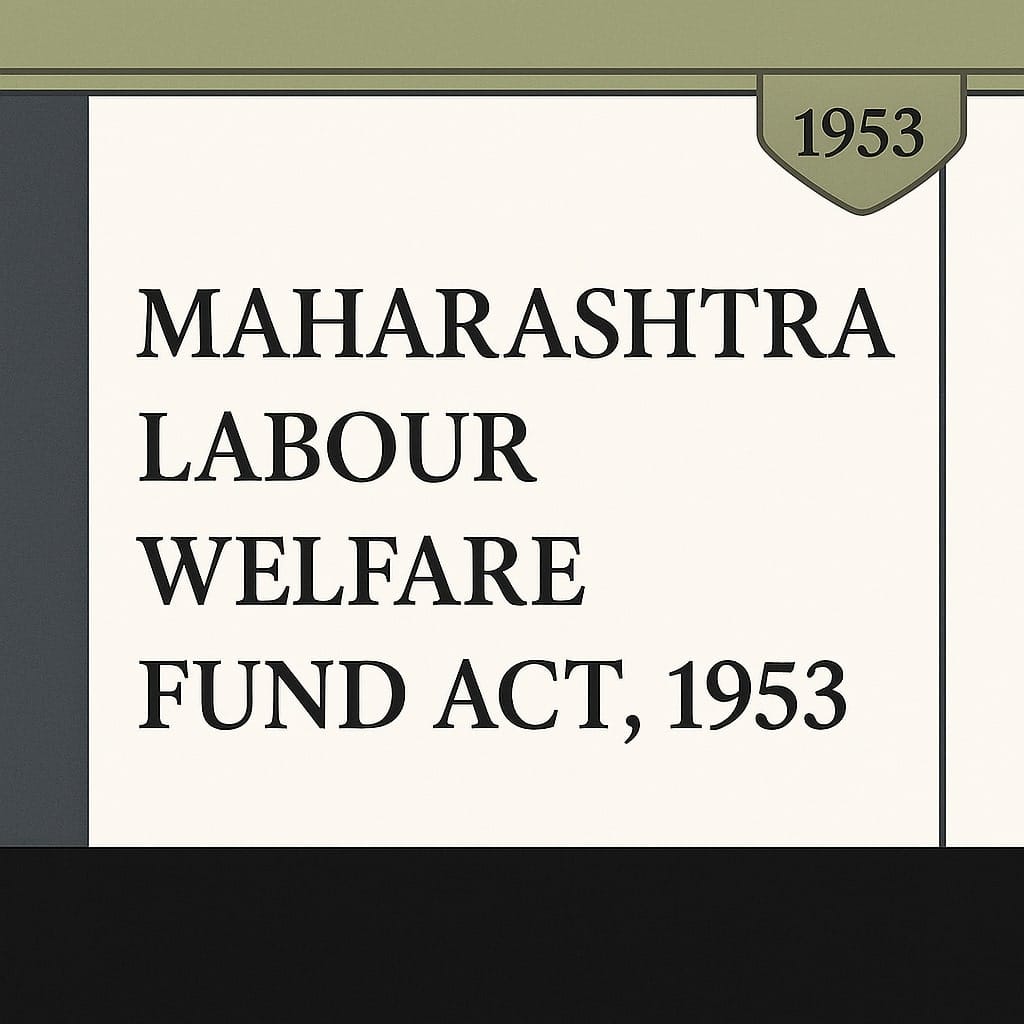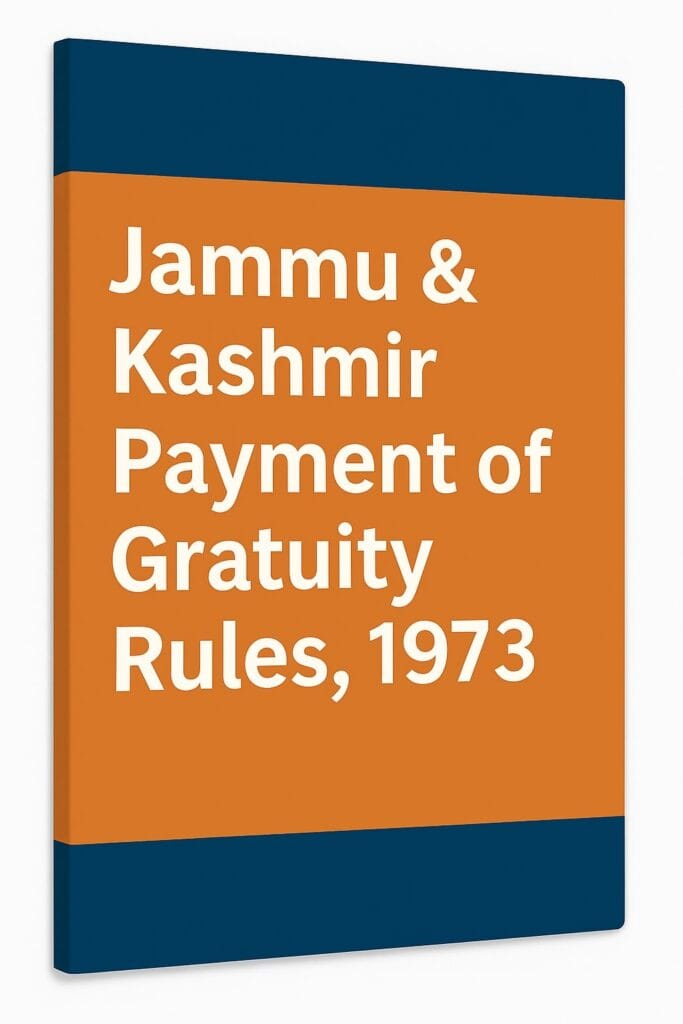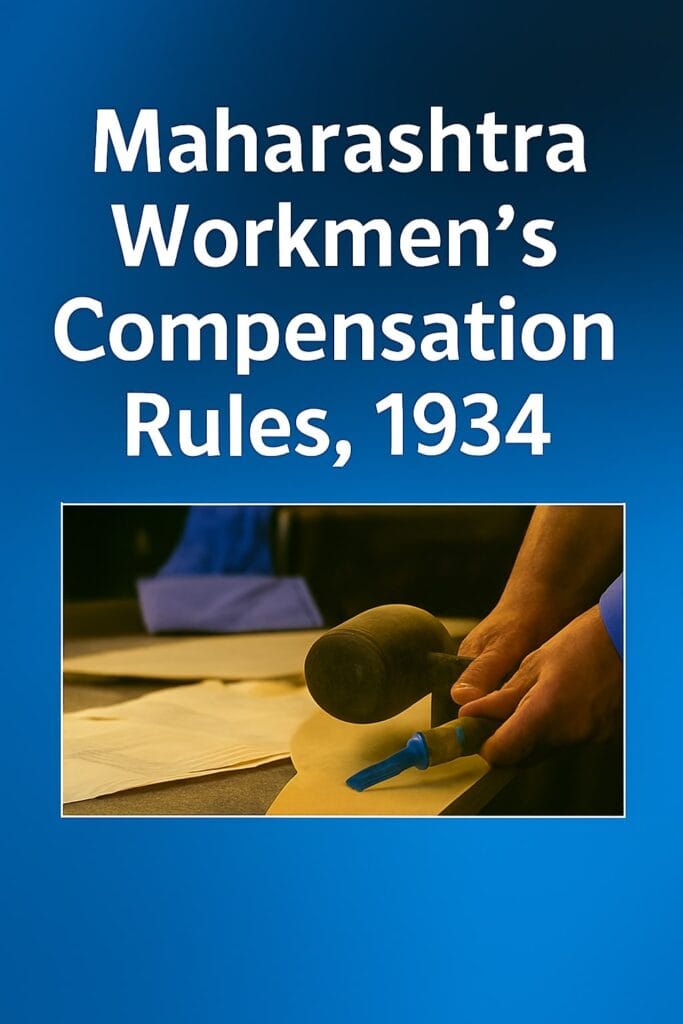Maharashtra Labour Welfare Fund Act, 1953

The Maharashtra Labour Welfare Fund Act, 1953 was enacted to provide for the constitution of a Labour Welfare Fund and its administration by the Labour Welfare Board for financing and promoting activities to improve the welfare of employees and their dependants. The Rules framed under the Act prescribe procedures for contributions, remittance of fines and unpaid accumulations, submission of statements, and maintenance of registers. The Fund is utilized for welfare measures such as housing, education, healthcare, recreation, and other facilities for workers.
Gujarat Labour Welfare Fund Act, 1953

The Gujarat Labour Welfare Fund Act, 1953 was enacted to provide for the constitution of a Labour Welfare Fund and to secure financing for welfare measures and facilities for workers in the State of Gujarat. It ensures that fines, unpaid wages, and contributions from employers, employees, and the Government are pooled together to fund welfare activities for the benefit of employees.
Karnataka Payment of Gratuity Rules, 1973

The Karnataka Payment of Gratuity Rules, 1973 were notified to implement the Payment of Gratuity Act, 1972 within the State of Uttar Pradesh. These rules lay down the procedure for employers and employees in matters of gratuity, including the format for notices, timelines for applications, methods of calculation, and the role of the Controlling Authority. The purpose is to ensure uniformity and clarity in gratuity administration across establishments in Uttar Pradesh.
Karnataka Labour Welfare Fund Act, 1965

The Karnataka Labour Welfare Fund Act, 1965 was enacted to establish a statutory Labour Welfare Fund and create mechanisms for financing and promoting welfare measures for workers and their dependants. The Fund is intended to be used for housing, medical facilities, educational assistance, recreation, social security, and other schemes that improve workers’ welfare. The Karnataka Welfare Fund Rules, 1968 provide detailed procedures for contributions, payment of fines and unpaid accumulations, maintenance of registers, and filing of returns
Jammu & Kashmir Payment of Gratuity Rules, 1973

The Jammu & Kashmir Payment of Gratuity Rules, 1973 were notified to implement the Payment of Gratuity Act, 1972 within the State of J&K. These rules lay down the procedure for employers and employees in matters of gratuity, including the format for notices, timelines for applications, methods of calculation, and the role of the Controlling Authority. The purpose is to ensure uniformity and clarity in gratuity administration across establishments in J &K.
Haryana Contract Labour (Regulation And Abolition) Rules, 1975

The Haryana Contract Labour (Regulation And Abolition) Rules, 1975 were framed by the Government of Haryana under the Contract Labour (Regulation and Abolition) Act, 1970, to regulate and monitor the employment of contract labour within the state. The rules aim to safeguard workers from exploitation by ensuring proper registration of principal employers, licensing of contractors, and compliance with welfare provisions such as wages, canteens, restrooms, drinking water, and first aid. They also prescribe maintenance of registers and records, timely payment of wages, and provide powers to inspectors for enforcement. Overall, these rules were introduced to improve the working conditions of contract labour in Haryana while ensuring accountability of employers and contractors.
Employment Exchanges (Compulsory Notification of Vacancies) Rules, 1960

The Employment Exchanges (Compulsory Notification of Vacancies) Act, 1959 and its corresponding Rules of 1960 were introduced to ensure systematic reporting of employment opportunities by establishments to Employment Exchanges. The objective was to create a centralized database of vacancies, facilitate job matching for job seekers, and promote transparency in recruitment. By mandating employers to notify vacancies and submit periodic returns, the law supports effective workforce planning and enables the government to assess trends in employment generation.
The Sexual Harassment of Women at Workplace (Prevention, Prohibition, and Redressal) Act, 2013

The Sexual Harassment of Women at Workplace (Prevention, Prohibition, and Redressal) Act, 2013, commonly known as the PoSH Act, was enacted to provide protection against sexual harassment of women at workplace and for the prevention and redressal of complaints of sexual harassment. The Act mandates the constitution of Internal Complaints Committees (ICC) and Local Complaints Committees (LCC) to address complaints of sexual harassment at workplaces.
Maharashtra Workmen’s Compensation Rules, 1934

The Maharashtra Workmen’s Compensation Rules, 1934, were framed under the Employee’s Compensation Act, 1923. These rules detail procedural obligations for employers in Maharashtra to ensure injured employees or their dependents receive due compensation for workplace-related injuries or fatalities. The rules outline forms, timelines, responsibilities, and penalty clauses for defaulting employers.
Delhi: Employee’s Compensation Act, 1923

The Employee’s Compensation Act, 1923, earlier known as the Workmen’s Compensation Act, was enacted to provide financial protection to employees and their families in the event of injury, disablement, or death arising out of and during the course of employment. The Act makes it the responsibility of the employer to pay compensation to workers or their dependents for work-related accidents and occupational diseases. In Delhi, as in the rest of India, this law ensures that employees engaged in various types of employment are safeguarded against the economic hardship caused by workplace injuries. The Act also prescribes procedures for determining compensation, resolving disputes, and registering agreements, thereby creating a structured framework for employee welfare and social security
